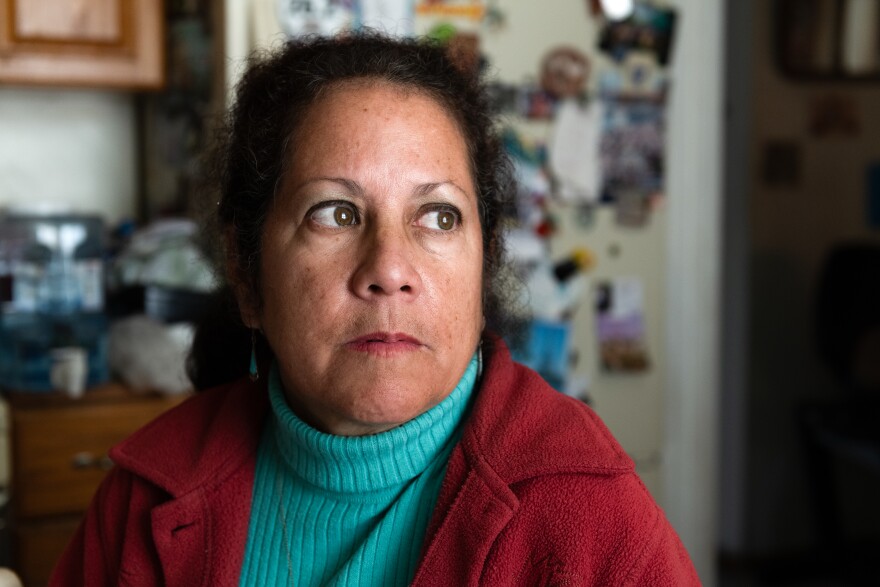San Diego County is among the top 10 U.S. counties with the highest Alzheimer's Disease cases, with an estimated 58,553 people over 65 diagnosed with the disease, according to recent findings by the Alzheimer’s Association.
The disease, which ranks as the third-leading cause of death for adults over 80 in the county, is not only taking a heavy toll on affected individuals but also their families and caregivers.
Patricia Hernandez has been tirelessly caring for her parents, Virginia and Ricardo Hernandez, for nearly two decades. She said having two parents diagnosed with dementia has been devastating.
“My dad, his Alzheimer’s progressed faster than my mom’s. And so, she’s digressed in her abilities very slowly. Friends and family would tell me, 'I can’t believe you have two parents with dementia at the same time,'” she said.
The family had no history of Alzheimer's. Patricia initially thought her mother's symptoms were a natural part of aging.
“I knew she was losing her memory, but I didn’t know that eventually I’d find out it was an official diagnosis for dementia. About five years later, my dad’s diagnosis came,” Patricia said.
Her father died in 2021 from Alzheimer's complications.
With no cure in sight, the number of people living with Alzheimer’s and related dementias in San Diego County is set to surpass 115,000 in the next six years according to San Diego County epidemiologists. This memory-robbing disease has a devastating impact on families, yet new drugs showing promise in slowing its progression offer hope. But questions remain about whether those most at risk will have fair access to this new medication.

By the time Patricia’s parents were diagnosed they were already having hallucinations. The disease progress was considered moderate-to-severe. That made last year’s FDA approval of the drug Leqembi, which was designed and approved to treat early-stage Alzheimer’s, bittersweet, Patricia said.
Latinos and Blacks tend to be diagnosed at later stages of the disease, automatically excluding them from the use of Leqembi.
Patricia is concerned about accessibility and affordability of the medication, especially for Latinos, who are 1 1/2 times more likely to develop Alzheimer’s than whites. Experts say that health conditions like heart disease and diabetes, which are more prevalent among Black and Latino populations, are known risk factors.
Medicare is crucial for patients hoping to afford Leqembi, which is priced at $26,500 a year.
That may be especially true in San Diego County for more than one-third of Blacks and Latino residents who are reported to live on incomes of about $28,000 a year or less. Even though Medicare is picking up the majority of the bill, many patients will still have to pay more than $5,000 annually in out-of-pocket costs.
Hector González, professor of neuroscience at UC San Diego, is leading the nation’s largest study on Latino brain aging. He said cost isn’t the only barrier for Latinos.
“Invariably, we see people of Latino heritage, in particular people of Mexican heritage, really have limited access to health care and in order to get into one of these trials,” González said. ”You need a medical diagnosis saying, 'Yes, this person looks like a true Alzheimer’s case.'”
Leqembi also cannot be used to treat vascular dementia which affects Blacks and Latinos at higher rates, González said.
Patricia isn't sure if her parents were diagnosed with vascular dementia, but she would have valued having more time to spend with them.
“I certainly would have tried everything to find the money even to the point where it may have bankrupt us to get that medication because it’s hope,” Hernandez said. “Everyone should have access to hope.”






